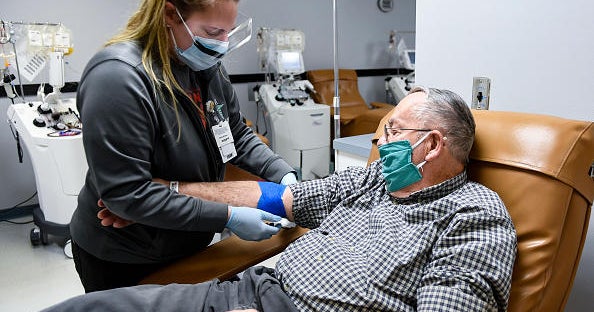Nearly one-fourth of adults and older teens in the United States had not contracted COVID-19 by the end of last year, according to recent estimates from the Centers for Disease Control and Prevention (CDC). On the other hand, 77.5% of individuals had antibodies from at least one previous infection. These figures are derived from the final results of nationwide studies conducted by the CDC to analyze antibodies in individuals aged 16 and older.
The CDC frequently referred to estimates from these studies to simplify vaccine recommendations and relax COVID-19 restrictions as the public health emergency dwindled down earlier this year during the Biden administration. The CDC now estimates that almost all Americans aged 16 and older, specifically 96.7%, possessed antibodies either from vaccination, surviving the virus, or a combination of both by December. The study also found that 77.5% of individuals had acquired some immunity from a previous infection.
Surprisingly, seniors had the lowest percentage of individuals with a previous infection at 56.5% among people aged 65 and over. Conversely, young adults and teenagers had the highest proportion of individuals with a prior infection at 87.1% among people aged 16 to 29. Among the 47 states included in the CDC dashboard, Vermont had the lowest prevalence of past infections, with only 64.4% of Vermonters having antibodies from a previous infection. On the other hand, Iowa had the highest share of residents with a previous infection at 90.6%.
There were similar rates of prior infection among men and women, while Black and White individuals had comparable rates ranging between 75% and 80%. However, Asian Americans had the smallest proportion of individuals with antibodies from a previous infection at 66.1%, while Hispanic people had the highest at 80.6%.
The CDC has already published estimates for children using data from commercial testing laboratories. According to those statistics, over 90% of Americans under 18 had survived COVID-19 at least once by December 2022.
“Very difficult to measure”
The federal figures on seroprevalence, which indicate evidence of antibodies in the blood, have been instrumental in understanding the extent of undetected or underreported virus spread. Surprisingly, only 54.9% of all adults believe they have ever had COVID-19, based on survey results from the Census Bureau published by the CDC. Having antibodies from a previous infection does not guarantee protection against reinfection, as immunity diminishes over time. The steepest declines in immunity were observed among individuals without hybrid immunity from both infection and vaccination.
Experts now recognize that each person’s risk from the virus depends on their unique combination of previous vaccinations and infected variants. According to a CDC study encompassing data from 18 health departments, reinfections accounted for 17% of COVID hospitalizations by the end of last year. Increasing seroprevalence has also affected how vaccine effectiveness is measured, with prior infections making it challenging to gauge effectiveness accurately.
As a result, researchers are now focusing on determining the additional protection offered by each year’s new COVID booster shots for everyone, regardless of their previous vaccination history.
Denial of responsibility! VigourTimes is an automatic aggregator of Global media. In each content, the hyperlink to the primary source is specified. All trademarks belong to their rightful owners, and all materials to their authors. For any complaint, please reach us at – [email protected]. We will take necessary action within 24 hours.


